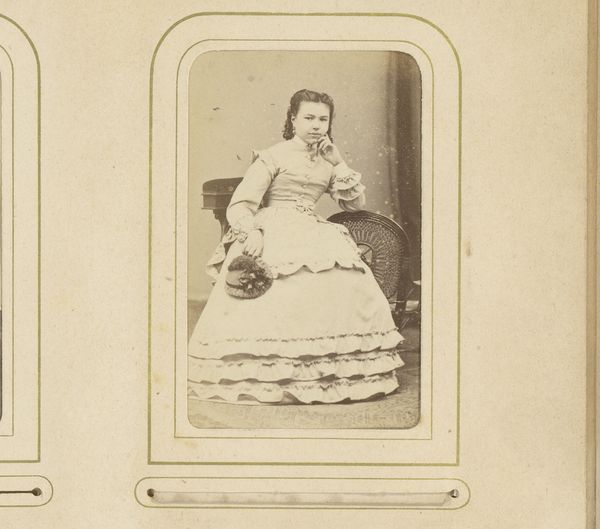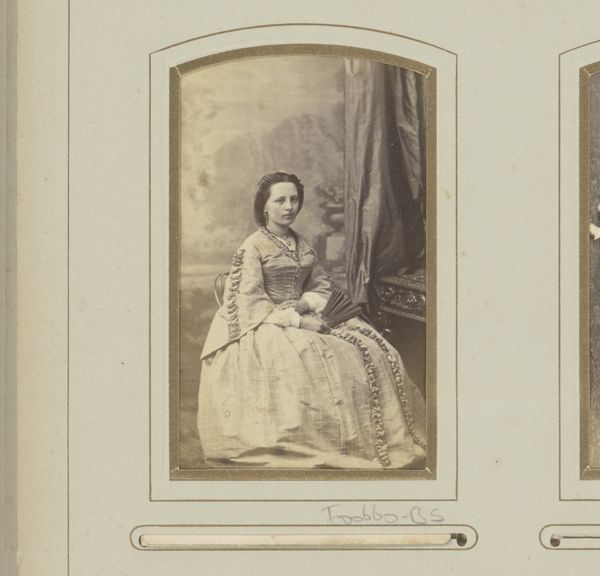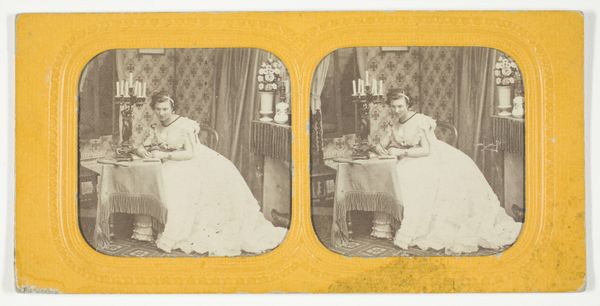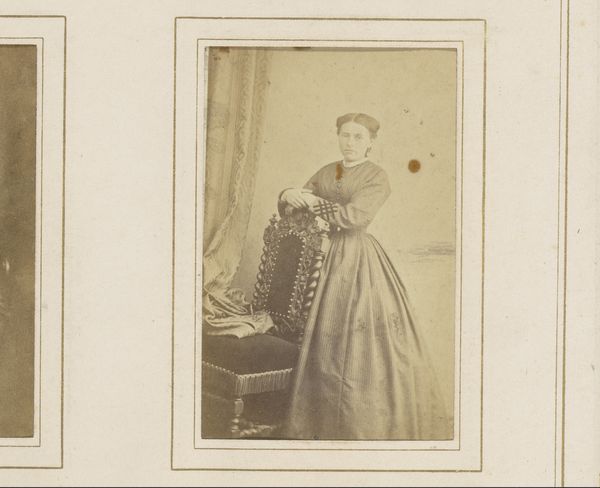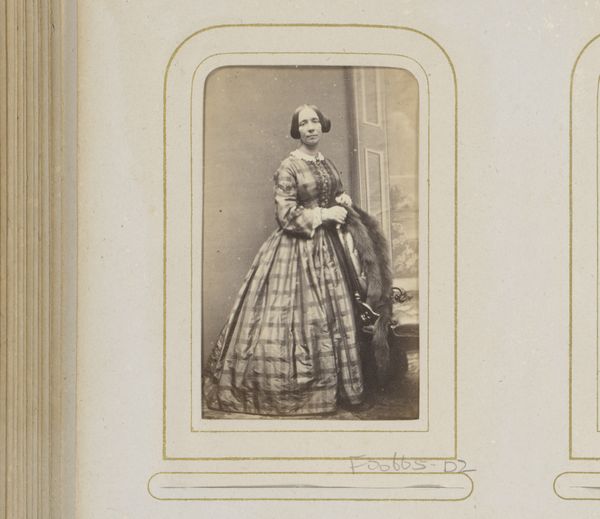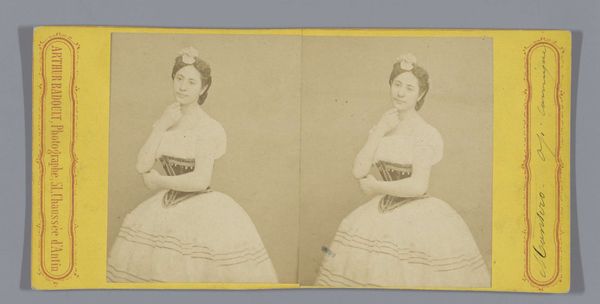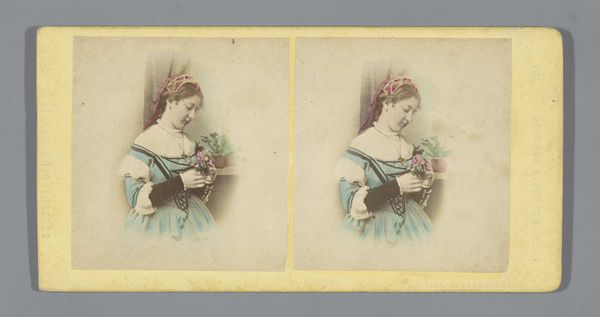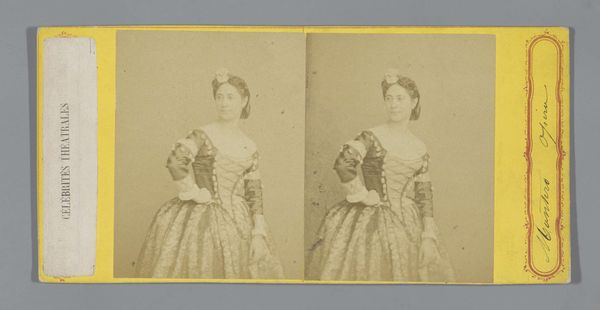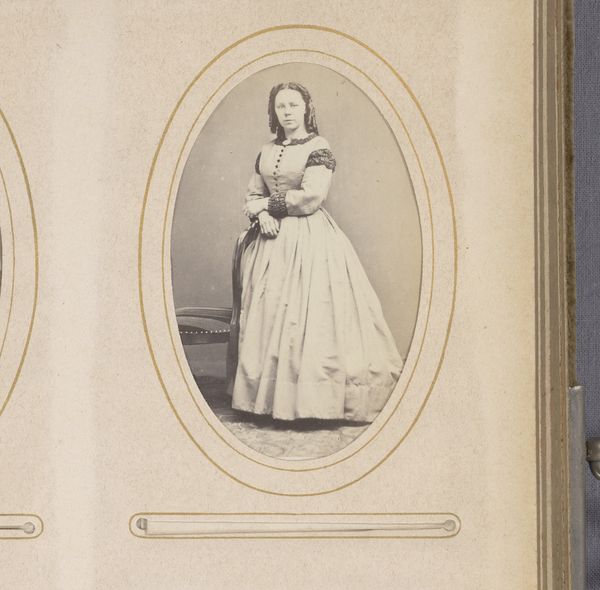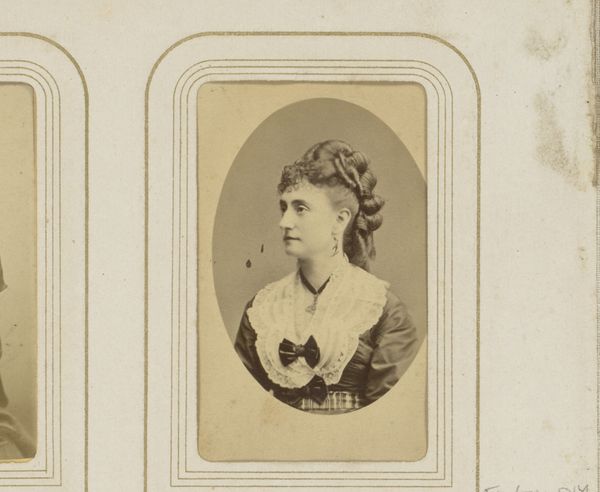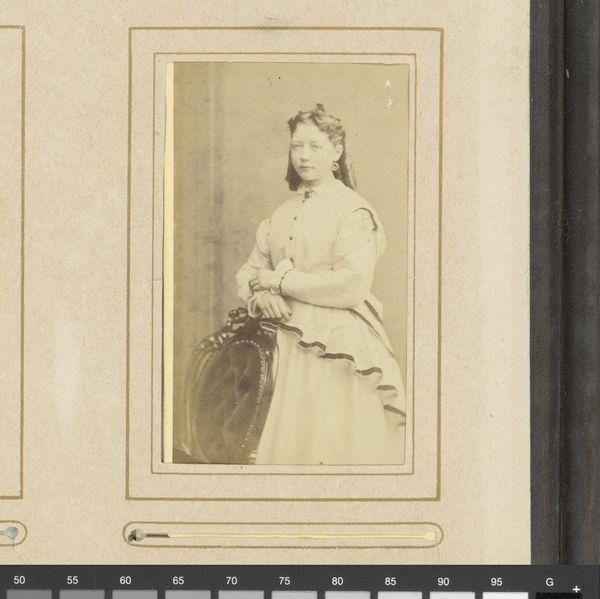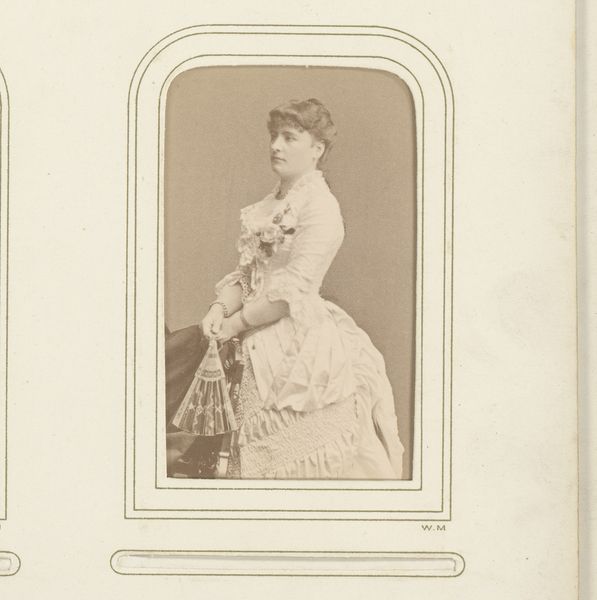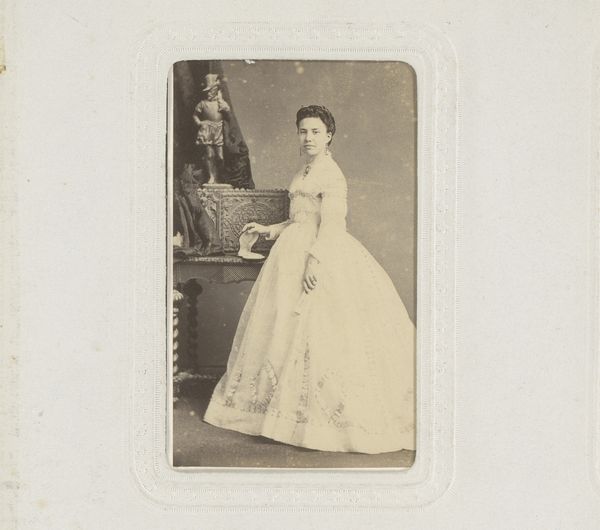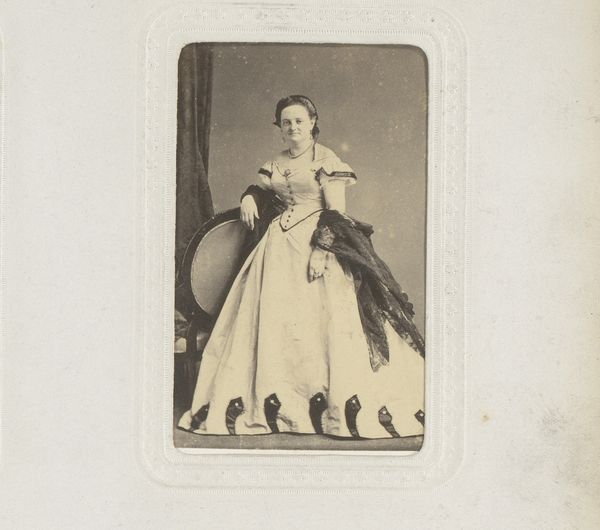
photography, gelatin-silver-print
#
portrait
#
water colours
#
photography
#
gelatin-silver-print
#
watercolor
Dimensions: height 88 mm, width 177 mm
Copyright: Rijks Museum: Open Domain
This is a stereoscopic photograph by Anatole Pougnet, dating back to the late 19th century. The image presents a woman arranging flowers, a common symbol of beauty and transience, reflective of life’s fleeting nature. The act of arranging flowers, or "flower language," was a popular Victorian pastime, where specific blooms conveyed coded messages of love, friendship, or mourning. One might think of Botticelli’s "Primavera," where Flora scatters flowers, symbolizing renewal and the cyclical nature of time. The careful arrangement of flowers can also be seen in ancient Egyptian funerary garlands, symbolizing rebirth. The presence of flowers evokes a deep, subconscious connection to cycles of growth, decay, and regeneration. The psychological resonance lies in recognizing our mortality, while also seeing the promise of life’s continuous renewal. Ultimately, the art of arranging flowers reveals our enduring need to find order and beauty in the face of impermanence, an impulse that has spanned millennia.
Comments
No comments
Be the first to comment and join the conversation on the ultimate creative platform.
